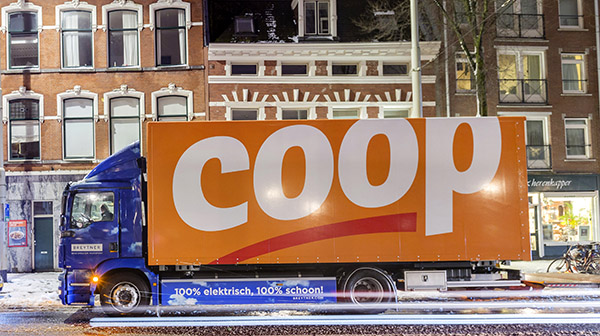United States - European Commission Urban Freight Twinning Initiative: Compendium of Project Summaries, Volume II
Overview of 2018-2019 International Urban Freight Roundtables
| Policy | Pilot | European Union |
Living Lab City Logistics in the City of Rotterdam
Many cities are grappling with the challenges posed by urban freight logistics. The City of Rotterdam employs a Living Lab approach through its City Logistics Living Lab, which has developed rules and regulations—along with appropriate support mechanisms—in an effort to influence city logistics. The Lab hosts many initiatives. For instance, through the ECOSTARS program, transporters can earn "stars" for sustainable business operations. Businesses are provided information (e.g., on how they can save more fuel) should they implement that program, they are awarded a star. Customers can quickly and easily see how clean and sustainable a carrier works based on the number of stars they have, providing them positive publicity in addition to realizing fuel cost savings. Other examples of activities in the Rotterdam Living Lab include knowledge exchanges and trials with vehicles. The methodology follows a cyclical approach, where several solutions can be tested and readjusted/improved to fit the changing real-life environment.

Coop and Bretyner with electric freight vehicle in Rotterdam.
Source: City of Rotterdam.
Project Types
Policy, Pilot.
Period of Performance
Ongoing.
Project Site
Rotterdam, The Netherlands.
Contact
Richard van der Wulp
Senior Urban Planner
City of Rotterdam
Rotterdam, The Netherlands
R.vanderWulp@rotterdam.nl
31610306659
Topics Addressed
- Air quality/environment.
- Last mile delivery.
- Livability/quality of life.
- Mobility/congestion.
- Modeling.
- Safety.
- Supply chains.
Expected Outcomes
The Living Lab is a continuous process. The city of Rotterdam strives to reach a more livable city with a thriving economy. This means better air quality, less noise, better accessibility, less carbon dioxide emissions, increased spatial quality, etc. Meanwhile, the city helps to engage the innovative process with the private sector. This means trial and error of implementing new logistical concepts and using zero emission freight vehicles.
Stakeholder Involvement
Transport company (front runners and other), representative organizations of the transport sector, research institutes, consultancy, educational facilities, buyers, original equipment manufacturers (OEMs), banks, etc.